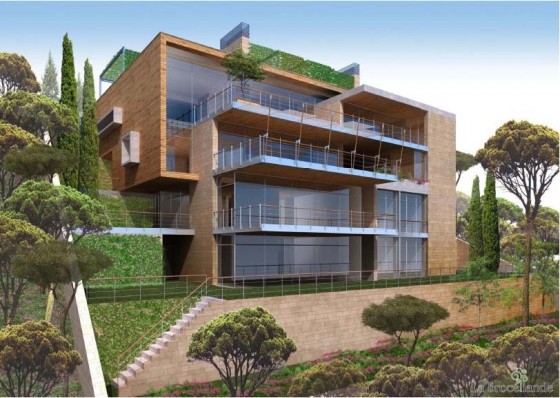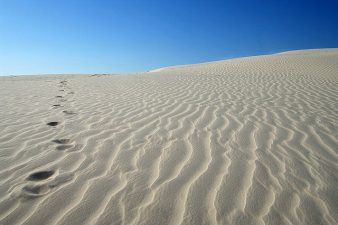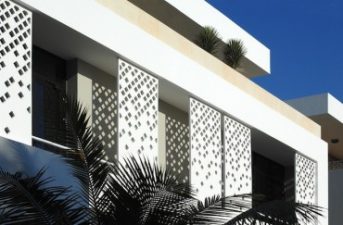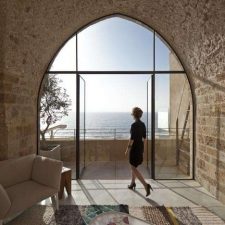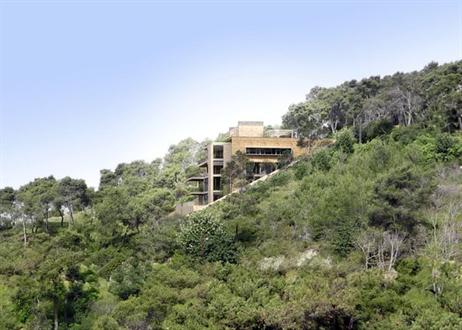 This may look like an ordinary villa on a hill, but it’s not. This villa is part of a growing movement in Lebanon that is revolutionizing the green building industry.
This may look like an ordinary villa on a hill, but it’s not. This villa is part of a growing movement in Lebanon that is revolutionizing the green building industry.
Instead of mistaking Gross Domestic Product (GDP) for happiness, or giant energy-hogging homes for class symbols, Lebanon could learn from Western regret by revolutionizing its green building industry. This won’t happen quickly since ongoing environmental catastrophes such as toxic waste and kerosene leaks into the Mediterranean Sea point to a slow progress, but definitive steps are being taken by concerned citizens to improve the country’s environmental profile and Greenstone Real Estate Developers are leading the way. As the firm edges closer to achieving high BREEAM rankings for La Brocéliande – a “bespoke” four-storey home in the Beirut suburb of Yarzé – a sustainable Lebanon seems increasingly possible.
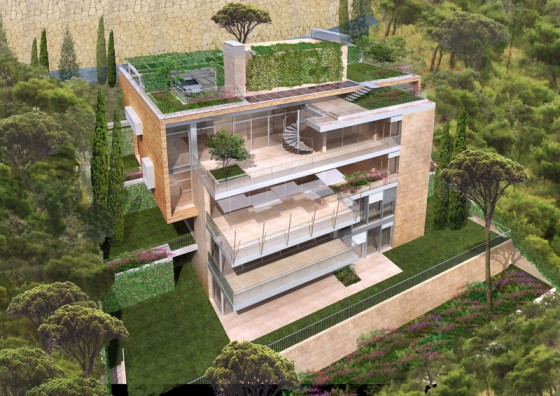
Aiming High
When La Brocéliande was first conceived the Lebanese Green Building Council’s ARZ rating system had not yet been established, so Greenstone Real Estate Developers took it upon themselves to adapt their luxury building projects to the longstanding BREEAM standards formulated in 1990 by the United Kingdom’s Building Research Establishment (BRE).
Since then, BREEAM has become more strident, and has been exported to several other countries as BREEAM International.
The LGBC has eschewed UK standards for a rating system that more accurately addresses the Lebanese building context. Sourcing appropriate construction materials up to par with the developed world is just one of many challenges that designers in the developing world face when trying to incorporate international standards in their home countries. This can be disheartening and defeating, but Greenstone has the capital to aim high.
La Brocéliande
La Brocéliande is a beautiful building tucked into the side of a mountain. It receives part of its energy from solar-panels, recycles greywater, has superior thermal insulation that cuts energy consumption, and it also features a green roof. The latter further insulates the home and captures rainwater runoff. With these attributes, Greenstone’s General Managers – the Saadé brothers – expect to achieve “very good” BREEAM certification.
Building green is not only an altruistic move, though the Saadés are quick to point out that developing projects in a manner that is sustainable in the long term should become a moral imperative given the “scary” consequences for our ecosystems and climate if we don’t, but also a financially smart move. Even if building costs are initially somewhat higher, sustainable construction does pay off eventually. And the sooner more businesses and citizens demand more sensible standards, the sooner it will become economically viable for everyone to have healthy green homes.
Bare Minimum
But there is a risk. BREEAM, LEED, and Estidama are all wonderful standards, but they are frequently abused as nothing more than a marketing tool. Companies are guilty of striving for the bare minimum requirements just to sell a lazy effort as green. Building standards were typically developed by stakeholders with genuine concerns about the paltry state of our planet.
As such, achieving the very best (more than required, even) should become an integral part of the collective consciousness of architects, designers, and developers – as well as their clients – throughout North Africa and the Middle East.
:: Story and top image via Daily Star
More on Green Building in Lebanon:
Beirut is Getting its First Green Roof Tower
3 Eco-Svelte Energy Slashing Projects Awarded in Lebanon

